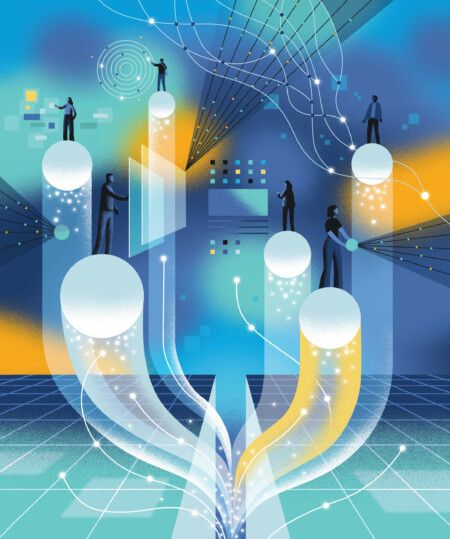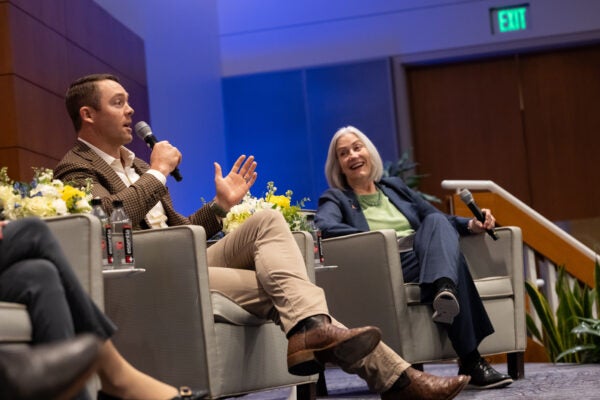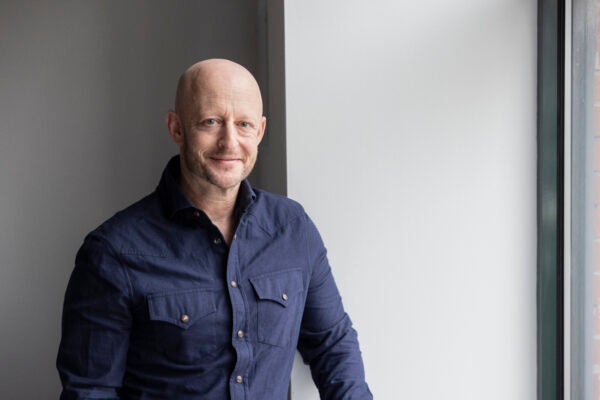Until recently, it’s been hard to imagine a technology more disruptive and transformative to our culture and to business than the internet. But a revolution is rising that is expected to be an even greater exponential shift than the World Wide Web.
That’s one of the only things tech experts seem to agree upon, and much of their debate isn’t on whether AI will be huge, but how huge. Jeremiah Owyang, a technologist and venture capitalist who says he’s seeing thousands of new companies founded around AI, told attendees at a McCombs AI conference last fall, “AI is as consequential as the Industrial Revolution. We can already feel the societal upheaval.”
Upheaval, as the internet’s rise proved, can be exciting but scary. Even as tools such as the AI language software ChatGPT explode in popularity and more people get access to artificial intelligence, there are still fears that the technology will run amok. Many are concerned that millions of jobs will be displaced by AI, something that’s extremely likely, and that governments will never be able to meaningfully regulate this global shift toward info-automation.
But industries as diverse as marketing, health care, and robotics are incorporating AI, including machine-learning algorithms, into their business practices. AI is still in its embryonic stage, but new applications are being discovered every day. So far, it has proved powerful in crunching large amounts of data to assist in medical diagnostics, finding new ways to reach customers through chatbots and targeted branding, and handling essential everyday tasks such as bookkeeping and copywriting.
AI could soon help a humanoid-style robot decide whether it’s time to fold clothes or do the dishes in your home instead of being programmed specifically to choose one over the other.
The University of Texas at Austin has designated 2024 as the “Year of AI.” In that spirit, we explore the accomplishments of three McCombs alumni: Rachel Woods, MIS ’18; Ganesh Padmanabhan, MBA ’12; and Jeff Cardenas, MSTC ’13. They founded companies that aim to harness AI to create positive change in their fields: small business development, health care, and robotics.
Faculty members, meanwhile, are incorporating AI into the curriculum to better prepare students for an evolving workplace. And McCombs scholars, including assistant professor of marketing Gizem Yalcin Williams, are studying AI’s impact on society.
Here are their stories.
About this Post
Share:





